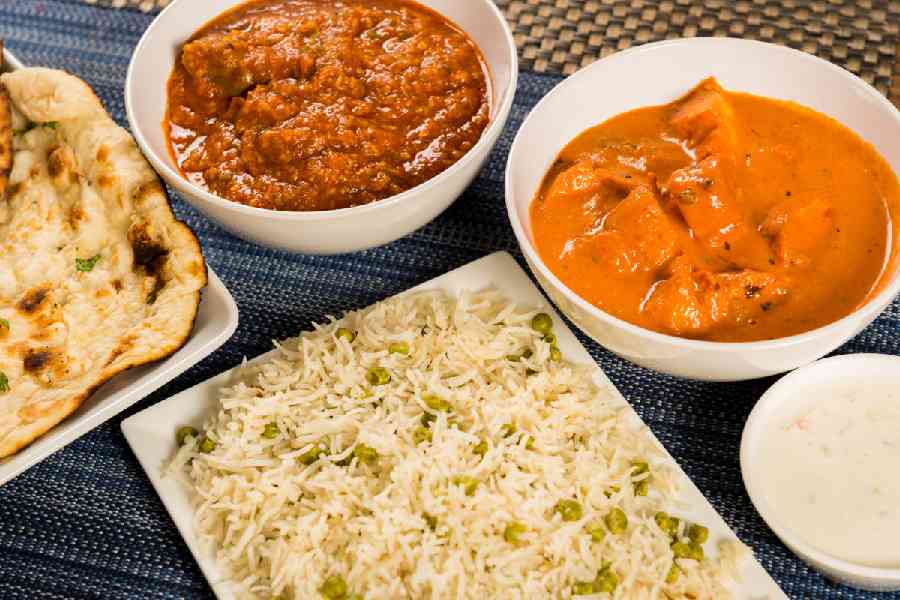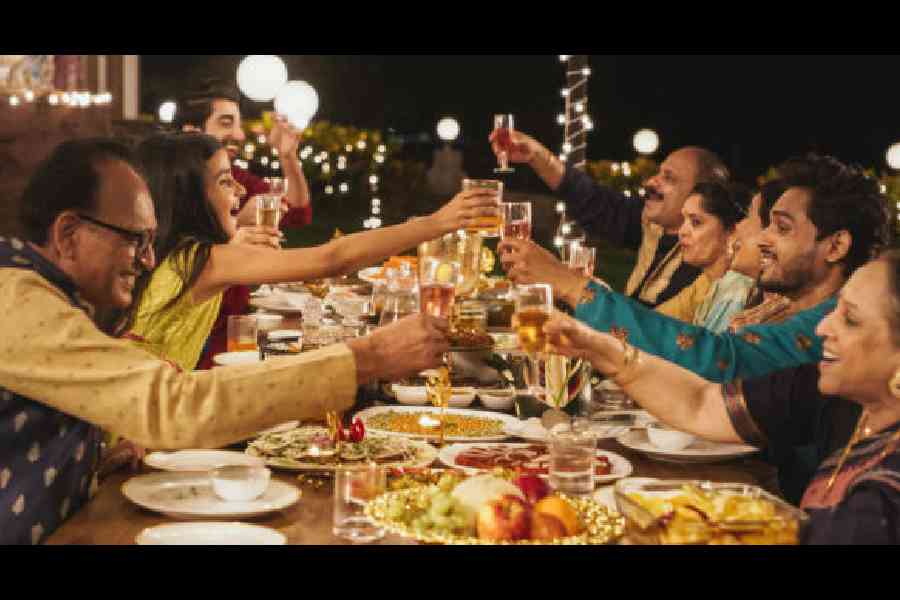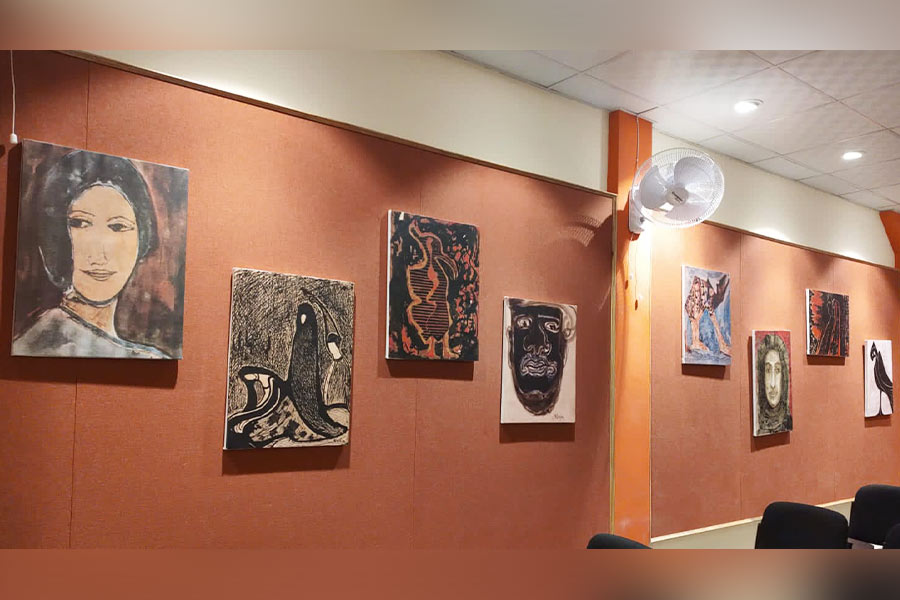Almost all of us spend several hours a week waiting eagerly to collect boxes of twice-cooked pork strips, fish fingers, kosha mangsho or gulab jamun. Imagine life without a food delivery service. Be it Swiggy or Zomato, these companies have changed the way we eat, entertain and even go about work.
These platforms have become so much more than just food. “People are looking to do different things with their time. For some people, spending more time with the family is important, for some it will be the kids, for a couple it could be experiences. The whole concept of ‘daily duty’ is changing dramatically. We are in the world of offering conveniences, whether you want groceries from Instamart to be delivered to you or you want food from a certain restaurant,” Rohit Kapoor, CEO, food marketplace, Swiggy, tells t2oS when we meet for a chai-pe-charcha hour at a restaurant on Park Street.
Calcutta runs through Kapoor’s blood, it keeps his heart beating. The first couple of decades of his life were spent here, mostly playing cricket with his friends and eating the best street food one can imagine.
“All festivals revolve around food. When I was a kid, Durga Puja used to be like, ‘What will you wear and what will you eat?’ It is in the DNA. In school, we used to check out one another’s tiffin boxes and go: ‘Tui ki enechish?’ Calcutta is an example of a city where traditions have been preserved. The number of places serving authentic Bengali food used to be limited. There was Kewpie’s back in the day. Then there was Aaheli (Peerless Inn). Today, it’s a biggish number, including chains. Thanks to brands like Oh! Calcutta, more people know about Bengali cuisine; it took Bengali cuisine out of Calcutta in a very organised way,” he says, digging into a rum ball.

By ordering in food, people are left with more time to pursue other activities
He says one cannot overstate the level of experimentation that exists in the food scene here. For example, our unique dhaba culture. “Sure, it’s there in the north also but that’s mostly found along highways, like if you travel from Delhi to Chandigarh, or to Jaipur. Inside-the-city dhaba culture is now flourishing, say, in Gurgaon. But in Calcutta there has been Azad Hind Dhaba and Balwant Singh dhaba for such a long time. I remember a time when we watched a film late at night and then went to one of these places; the food used to be served in the car. You eat on the bonnet of the car. Another example is nightlife in Calcutta. It has always been strong and that too at a sustained pace. Other places have ebbed and flowed.”
Perhaps the biggest lesson the city can teach the rest of India is how one can still spend Rs 10 and get some snack or the other. On the other end of the spectrum is spending Rs 3,000 on a meal. Like Kapoor says, it’s a very robust scene.
Changing the way we plan meals
Where does Swiggy fit into all of this? Convenience. All food delivery services have changed the way we plan our meals. “If you look at any business quarterly, one quarter will feel great, another quarter will be okay. I don’t look at it that way. Take a look at the improving income pyramid and what it means. Certain markets are starting to look more global. An average human being will consume 105 meals a month — 30 each of breakfast, lunch and dinner while snacks are had now and then. If I have to talk about metro cities, the frequency of ordering in or dining out is seven or eight a month. But there are some parts, like the IT corridor in Bangalore, where this figure may touch 20. Today, if I tell you Swiggy is a nine-year-old company, you will feel that it has been around much longer. We are a young company, in its 10th year. The possibilities are endless. Our restaurant partners and consumers are important.”
Our habit of Swiggy-ing has also brought about a shift in grocery shopping. A couple of decades ago, Indian households were introduced to the benefits of cooking with olive oil, which slowly encouraged us to cook different kinds of food. Then came a growth spurt for the cheese industry in India. Before we knew it, excellent spaghetti was being cooked in many Indian households. What a service like Swiggy is doing is making us plan pantry shopping differently.
“The monthly grocery buying trend is going down. People are choosing what to do with their time. If you look at any urban city, getting from Point A to B involves traffic, parking, and so on. For a 10-minute job we may end up spending 50-60 minutes. People will step out more and more for their livelihoods and their entertainment needs, which could be meeting friends, going to the cinema or attending a sporting event. Since you can get groceries in 10-odd minutes, many households are not stocking up for longer periods. People are stocking up for four-five days. Consumers love Instamart. Kids and elders both want it,” says Kapoor.
He says people are no longer “forced” to cook. Sunday meals are meant to be about the entire family and every member’s calorie demands can be met. “We are creating choices for consumers as to what they want to do with their time. In families, it’s always tough to arrive at that common ‘ki khabe (what will you eat)’ query. If there are four answers in a household, how do you arrive at one? On a Sunday, someone may want kichudi, another may ask for mangsho and there is that request for salad. People are choosing to make that one dish and order the rest in.”
Hand-in-hand goes the issue of exposure to new food experiences. You can probably make sushi at home but it’s not a straightforward process. So, order in. “There is a lot more exposure: On Instagram you face a feast and people want to try something new.”
Youngsters are the same everywhere
A service like Swiggy is also a catalyst for a food movement in places we may overlook. “A year ago I was in Burdwan. Once upon a time my dad used to be posted there and back in the day, one of his biggest struggles was finding good food. My mom used to prepare a lot of food so that he could take it with him. He used to leave on Monday and return on Friday. What is happening there now blew my mind. You now get pizza, burgers and so on. I met a lot of entrepreneurs there. There was one guy who is already offering two outlets and wanted to open a sushi outlet. National brands are there and the scene is changing.”

Rohit Kapoor, CEO, food marketplace, Swiggy
What a young person may eat in Mumbai is not very different from what’s being had in Bangalore or Burdwan. “Youngsters are definitely the same. The person in Burdwan, Rourkela or Delhi… is watching the same Instagram Reel, they have access to the same information. So they are digitally on an equal footing. Consumption is a function of the pocket. The youth is similar.”
And it’s not just the youth that’s ordering in. “Who uses the app? I would still say it’s 20-45. But that’s the physical act of using the app. But there’s more to it. People who are not that used to digital platforms will ask someone in the family to order on Swiggy. They make the purchases but the act is being conducted by the son, daughter or daughter-in-law. The same goes for children, who ask family members to make a purchase. More and more people are relying on us.”
Of course, on that note our conversation had to turn towards AI, which could be the biggest offering of our times or a bubble that may burst any moment. Kapoor is cautious. “Technology like AI will be overstated in the short run and understated in the long run. That’s the nature of technology. I do believe it’s a generational change. None of us would exist the way we do had not the iPhone been born in 2007. Without a smartphone there wouldn’t be a Swiggy. Or the Maps technology. AI is in that league. It is a non-trivial change. Is it impacting heavily today? No. I think the hype cycle is ahead of the impact cycle at the moment. Is reality going to catch up? Yes.”
As for Bengali food, he says it has great potential to be popular in more markets. “I would encourage more and more Calcutta entrepreneurs to go national.”






